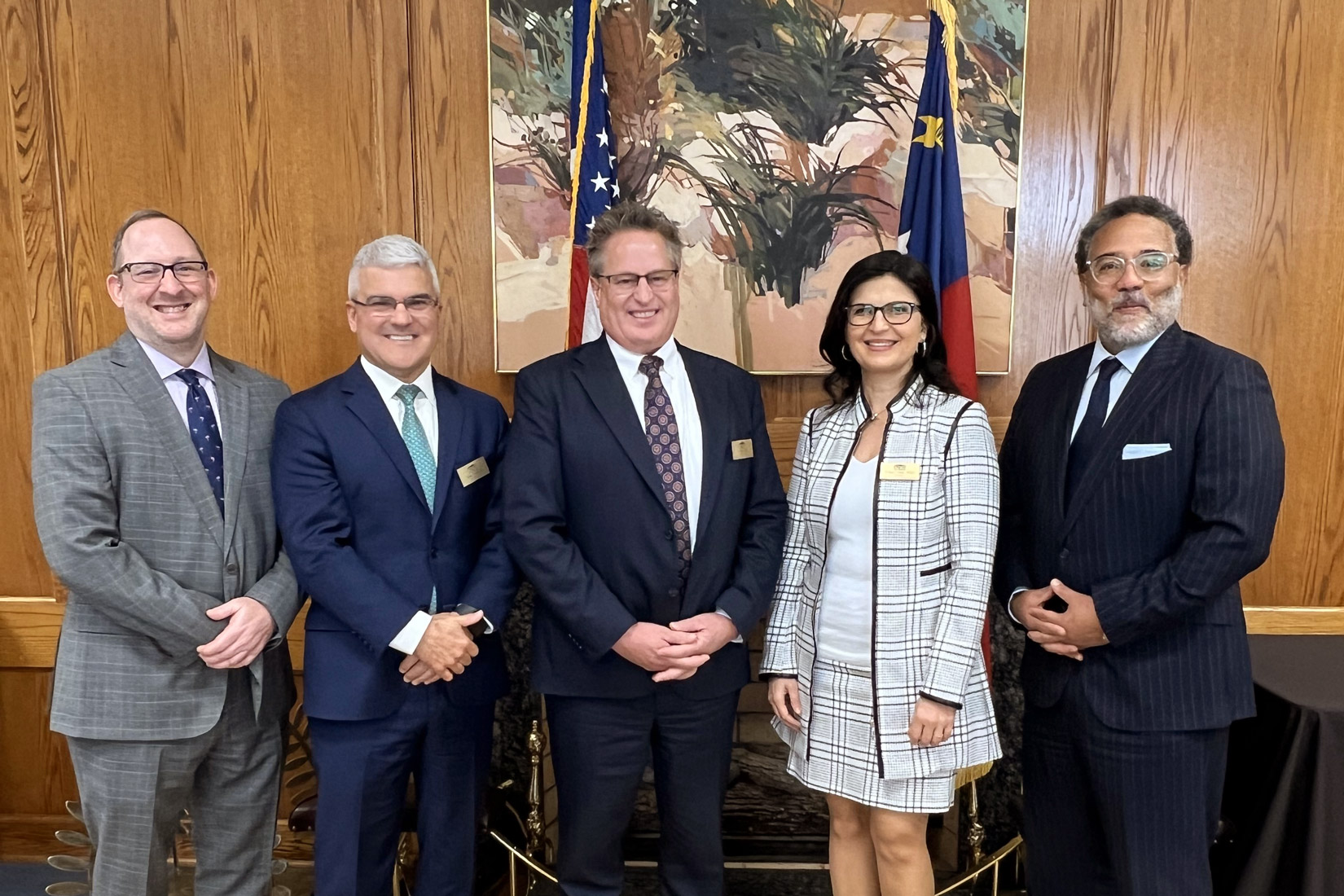Seahawks will help develop national standards and train future workforce to protect America’s Marine Transportation System from cyber threats.

Courtesy: UNCW Center for Cyber Defense Education
UNCW worked with Congressman David Rouzer (NC-07) to secure $625,000 from the FY24 federal budget for “Maritime Cyber Security: Standards Advancement, Research, and Workforce Development.”
Professor Ulku Clark, director of the UNCW Center for Cyber Defense Education, is the principal investigator (PI) for this project and Professor Ron Vetter, founding dean of the UNCW College of Science and Engineering, will serve as co-PI. The interdisciplinary research team includes faculty from multiple departments within the Cameron School of Business and the College of Science and Engineering.
The overarching purpose of this funding is to help secure and strengthen the resilience of the maritime subsector of the transportation systems sector, one of 16 sectors designated in Presidential Policy Directive 21 as critical infrastructure. As the current administration made clear in a Feb. 21, 2024, executive order (EO), bolstering maritime cybersecurity is critical as “America’s prosperity is directly linked to maritime trade and the integrated network of ports, terminals, vessels, waterways and landside connections that constitute the nation’s Marine Transportation System (MTS).”
“The United States must work to ensure we have the tools necessary to deter hostile actors from targeting our maritime sector,” said Congressman Rouzer. “It is important that UNCW has the resources to expand their maritime cybersecurity research and education program, and I was pleased to help during the appropriations process for fiscal year 2024. As cyber threats increase, UNCW will continue to lead the way in training the highly skilled workforce defending our nation’s maritime industry against cyber-attacks threatening our supply chains.”
This funding will enable UNCW to focus on maritime cybersecurity issues including risk assessment and remediation plan development, train a workforce to address the cybersecurity professional shortage, and develop standards that can be shared nationally. The effort will support the government agencies’ efforts to develop practices to reduce cyber risks to the maritime industry.
“UNCW cultivates a vibrant, collaborative cybersecurity ecosystem,” Dr. Clark said. “As North Carolina’s coastal university, we resolutely support the blue economy, which includes major efforts to address the need for a high-skilled maritime cybersecurity Workforce.” UNCW’s Center for Cyber Defense Education was established in 2018, and UNCW now offers eight cybersecurity programs including a cybersecurity major, minor and multiple concentrations. Adding a maritime cybersecurity specialization will build on UNCW’s already robust cybersecurity curriculum and help find solutions to critical national security issues. Rich partnerships propel CCDE’s success and include a committed cybersecurity advisory board of regional business partners; an active student-led Cyber Defense Club; and strong collaborative academic coalitions including the Carolina Cyber Network (CCN) and the North Carolina Partnership for Cybersecurity Excellence (NC-PaCE).
The United States’ system of ports and waterways contributes more than $5 trillion to the national economy, employs over 30 million people and provides the conduit for over 90 percent of all overseas trade.
This article has the following tags: CSE - College of Science & Engineering myUNCW - Faculty & Staff


